BASIC PREMISE: ENHANCING QUALITY, SUSTAINABILITY, AND ETHICAL PRACTICES
At Tytex, we are committed to maintaining the highest standards of quality, environmental sustainability, and ethical practices throughout our operations. Our Code of Conduct serves as a guideline for all our external providers, ensuring that they align with our values and meet the stringent requirements we set forth. This Code of Conduct not only governs our relationships with suppliers but also reflects our commitment to the well-being of our customers and the broader community.
SCOPE OF THE CODE OF CONDUCT
Our Code of Conduct applies to all purchases of products and services that directly or indirectly impact the quality and environmental aspects of Tytex products. We hold ourselves and our external providers accountable for meeting these standards to ensure the integrity of our products and protect the well-being of our customers.
RESPONSIBILITY AND AUTHORITY
We have designated Purchasing Responsible, R&D Managers, Sales and Internal Customer Service Managers, and other responsible individuals who play crucial roles in upholding our Code of Conduct. The Purchasing Responsible is responsible for evaluating external providers globally, establishing partnerships, and ensuring compliance with quality and environmental requirements. The R&D Manager approves technical specifications, while the Sales and Internal Customer Service Manager oversees warehouse operations and product handling.
SELECTION AND APPROVAL OF EXTERNAL PROVIDERS
We believe in partnering with external providers who demonstrate excellence in quality and environmental practices. We prioritize working with providers who are certified or registered to nationally or internationally recognized standards. In addition, our external providers must comply with our Code of Conduct, ensuring ethical and sustainable practices throughout their operations. We communicate our requirements to external providers through our Code of Conduct, specifications, and other relevant documents, empowering them to meet our expectations.
EVALUATION AND PERFORMANCE MONITORING
To maintain the highest standards, we regularly evaluate the performance of our external providers. This includes monitoring through evaluations, non-conformities, customer satisfaction surveys, and visits. Our evaluation process categorizes external providers into different groups based on the risk of adverse effects and their deliveries to our customers. Each group undergoes regular assessments, ensuring continuous improvement and adherence to our standards.
CONTROL OF PRODUCTS AND DELIVERY
We take utmost care in securing the quality and compliance of products and services purchased. Our purchasing team evaluates and approves all products and services, ensuring that they meet our requirements. Incoming and in-process inspections and tests are conducted to verify compliance and prevent adverse effects on our manufactured products. We maintain strict control over our supply chain to uphold the integrity of our offerings.
TRANSPARENT COMMUNICATION AND ACCOUNTABILITY
We value transparent communication with our customers and stakeholders. We inform our customers about products and services that are manufactured by external providers, ensuring transparency regarding the origin of these items. In cases where external providers ship products directly to our customers, we notify our customers about the arrangement, assuring them that the providers adhere to the agreed-upon standards.
CONTINUOUS IMPROVEMENT AND RISK MANAGEMENT
At Tytex, we are committed to continuous improvement and risk management. We actively seek alternative solutions if an external provider fails to meet our requirements. We conduct audits and evaluations to identify potential risks and address them proactively. Our aim is to mitigate risks, enhance quality, and ensure the safety and satisfaction of our customers.
By adhering to our Code of Conduct, Tytex and our external providers work together to create a sustainable and responsible supply chain. We are dedicated to delivering products and services of the highest quality, while also prioritizing the well-being of our customers and the environment.
OUR VALUES
A strong set of values guides all our actions and relations with our partners, distributors, suppliers, and end users:

EXCELLENCE
We insist on developing superior products of the highest quality and to exercise best practice in all we do.

INNOVATION
Innovation is key to success. We constantly improve our products by listening to valuable input from partners and end users.

TRUST
We seek to be a reliable partner in all our dealings and to earn the confidence of our customers and users.

CARE
Care is the core of everything we do. Our products are all about giving care to people with ostomy and hernia.
OUR CODE OF CONDUCT
INTRODUCTION
Tytex Group recognizes its responsibility for the conditions under which Tytex Group products are manufactured. All Suppliers must provide decent working conditions, treat workers fairly and respect and comply with environmental and ethical practices.
We are committed to running a responsible and sustainable business. Ensuring that our products are produced under responsible conditions stands at the core of this commitment, and in fulfilment of our ambition, we expect our partners – suppliers, subcontractors, agents, and other business partners – to operate responsibly and act with integrity, fairness and responsibility in all aspects of their business.
Our commitment implies having in place processes for preventing and addressing adverse impacts on human and labour rights, the environment, including climate, anti-corruption, and animal welfare. We use this Code of Conduct to support us in selecting and retaining business partners who share our commitment to responsible and sustainable production as defined by internationally agreed conventions, standards, and guidelines.
We ask our business partners to commit to implementing the standards, processes, and requirements of this Code of Conduct in their own operations and to work with their suppliers and business partners to also implement the policies, standards, and processes of the Code.
We recognise that establishing the required standards and processes outlined in this Code of Conduct requires both time and resources. We focus on our suppliers’ ability and willingness to demonstrate continuous improvements in meeting the requirements of the Code, and in improving their systems to manage adverse impacts on human and labour rights, the environment, including climate, anti-corruption, and animal welfare. We feel confident that cooperation and transparent dialogue can result in a more sustainable and efficient partnership from which both parties will benefit.
The standards of the Code of Conduct are based on internationally agreed conventions, including but not limited to: the International Bill of Human Rights, the International Labour Organisation’s (ILO) Declaration of the Fundamental Principles and Rights at Work, the UN Guiding Principles on Business and Human Rights, the OECD Guidelines for Multinational Enterprises, the OECD Due Diligence Guidance for Responsible Business Conduct, the UN Convention Against Corruption, the Rio Declaration on Environment and Development; and the UN Global Compact’s 10 Principles.
This Code of Conduct is based on the highest internationally accepted standard and each Supplier guarantees that such working conditions and ethical standards shall apply within their own facilities and to the extent that subcontractors are under it’s direct control to those facilities also.
All suppliers are also expected to comply with national legislation, regulations, and applicable practices and industry standards as relevant to their business.
1. HUMAN RIGHTS
Tytex condemns violation of any internationally declared human rights. People must be treated with dignity and respect regardless of social status and rank, age, gender, race and/or religious or political belief.
The Supplier warrants to support and not to violate such internationally declared human rights.
2. LABOUR STANDARDS
2.1 CHILD LABOUR AND YOUNG WORKERS
No form of child labour will be used or supported. A child is any person less than 15 years of age, unless local minimum age law stipulates a higher age for work or mandatory schooling, in which case the higher age would apply. If local minimum age law is set at 14 years of age, in accordance with developing country exceptions under ILO Convention 138, the lower age will apply.
No children or young workers will be exposed to situations in or outside of the workplace that are hazardous, unsafe or unhealthy. A young worker is defined as a worker over the age of a child as defined above and under the age of 18.
If child labour is detected at a facility, the supplier is responsible for developing, participating in, and contributing to policies and programmes that provide for transitional arrangements to enable the child to remain in quality education until no longer a child.
2.2 HEALTH AND SAFETY
Obligations to employees under international conventions and social security laws and regulations arising from the regular employment relationship must not be avoided by using short-term contracts, such as contract labour and casual labour.
All employees, including temporary and casual workers, must have written and legal employment letters in a language they understand, specifying conditions of employment and termination.
The working environment is to be safe and healthy and the Supplier and its subcontractors shall take adequate steps to prevent accidents and injury to health arising out of, associated with or occurring in the course of work, by minimizing, so far as is reasonably practicable, the cause of hazards inherent in the working environment.
All personnel shall receive regular and recorded health and safety training, and such training shall be repeated for new reassigned personnel.
Clean bathrooms, access to potable water, and, if appropriate, sanitary facilities for food storage shall be provided for use by all personnel.
If provided for personnel, dormitory facilities shall be clean, safe, and meet the basic needs.
The Supplier and its subcontractors further ensure that they have written health and safety guidelines, including those applying to personnel dormitory facilities, where applicable, and that those guidelines comply with all health and safety standards, laws and regulations in that country.
All premises used by the Supplier shall conform to local fire prevention regulations, have adequate and clearly marked safety exits, and have hygiene facilities all of which conform to National Law.
All premises used by the supplier shall conform to National Law to environmental protection.
Medical assistance shall be available to the workers of the supplier in case of emergencies and workers responsible for providing such medical assistance shall be trained in first aid procedures.
Emergency evacuation program shall be drawn up and shall be regularly tested.
2.3 FORCED LABOUR
No form of forced labour is to be used in any facilities associated with the Supplier or its subcontractors, nor shall personnel be required to lodge ‘deposits’ or original identity papers upon commencing employment with the company.
2.4 FREEDOM OF ASSOCIATION AND COLLECTIVE BARGAINING
Suppliers shall recognize and respect the rights of workers to join and organize associations of their own choice and to bargain collectively. Where law specifically restricts the right to freedom of association and collective bargaining, the employer must no obstruct alternative means for independent and free association and bargaining. In any case the employer shall implement systems to ensure good communication with employees.
Representatives of such personnel shall not be subjects of discrimination.
2.5 DISCRIMINATION AND HARASSMENT
The Supplier and its subcontractors shall not engage in or support discrimination in hiring, remuneration, access to training, promotion, termination or retirement based on race, caste, national origin, religion, disability, gender, sexual orientation, union membership, political affiliation or age.
Behavior, including gestures, language and physical contact, that is sexually coercive, threatening, abusive or exploitative will not be tolerated.
2.6 DISCIPLINARY PRACTICES
Corporal punishment, mental or physical coercion, sexual and other harassment and verbal abuse are not to be used.
2.7 WORKING HOURS
Applicable laws and industry standards on working hours is to be complied. The normal workweek shall be as defined by local law but shall not exceed 60 hours per week including overtime. Personnel shall be provided with at least one day off in every seven days worked. All overtime work shall be fully compensated for.
Overtime work shall be voluntary.
Tytex Group will favor Suppliers who use a max. 48 hour work week on a regular scheduled basis, and only use overtime to meet short term business or seasonal demand.
2.8 REMUNERATION
Wages paid for a standard working week shall always meet at least legal or industry minimum standards and shall be sufficient to meet basic needs of personnel and to provide some discretionary income.
Deductions from wages shall not be made for disciplinary purposed, and wage and benefits compensation shall be detailed clearly and regularly for workers. Wages and benefits are to be rendered in full compliance with all applicable laws.
The Supplier and its subcontractors shall comply with all provisions and regulations applicable to mandated benefits, including but not limited to housing, meals, transportation and other allowance, health care, child care, sick leave, emergency leave, pregnancy and menstrual leave, vacation, religious bereavement and holiday leave as well as contributions for social security, life, health, workers’ compensation and other insurance.
3. ENVIRONMENT
3.1 GENERAL PROVISIONS
Suppliers must conduct all operations in full compliance with all applicable environmental laws and regulations. This includes obtaining and maintaining all necessary registrations, permits, and licenses, including, but not limited to, below listed areas. Environmental laws and regulations applicable to the Suppliers business and the local surroundings are to be complied with and practices that minimize the impact on the environment should be encouraged.
Moreover, suppliers must have procedures and capabilities in place to ensure that they prevent and mitigate negative environmental impacts from their activities, or associated activities. At a minimum, procedures and capabilities must be in place for below listed issues.
We expect that our suppliers will request their supply chain to comply with these requirements.
3.2 CHEMICALS
To comply with REACH, the EU Regulation on Chemicals, no harmful chemicals are to be used in the production of our garments and/or in any packaging materials supplied to Tytex Group. Suppliers of Tytex Group products and packaging materials shall sign an agreement known as our Ecological requirements in which they guarantee that they comply with the requirements (in which they guarantee that they comply with the requirements in REACH).
Local laws must be followed in the storage, handling, use and disposal of all chemicals and must comply with the Material Safety Data Sheet (MSDS) for each chemical product.
3.3 WATER RESOURCES
Suppliers must carry out all operations in full compliance with all applicable laws, regulations, and industry guidelines on water conservation, water quality, and wastewater.
Measures must be put in place to clear wastewater. Suppliers should work towards minimising the use of water during production processes, including introducing water saving techniques and waste-water recycling. This is particularly pertinent for suppliers with wet processing. Suppliers without wet processes are also expected to manage and measure water consumption.
Suppliers should work towards measuring the impact of their operations on the local/regional water supply to avoid negatively contributing to water stress.
3.4 AIR QUALITY AND CLIMATE
Suppliers must reduce and control emissions to air according to applicable regulations. This includes noise, odour, and dust emissions.
Suppliers should work towards mitigating negative impact on climate change by carrying out the following measures: implementing energy efficiency measures in the value chain, starting with high-impact processes, using renewable energy sources if available; and calculating emissions and setting targets to reduce the emissions using recognized standard-setting tools.
3.5 WASTE MANAGEMENT
All waste must be managed responsibly and as a minimum according to applicable regulations. Hazardous waste must be handled by an authorized company/organisation.
Suppliers should minimize waste during production processes going to landfill, facilitate collection of waste to be re-used, reduce use of virgin raw materials, and optimize use of re-cycled materials. The goal should be no waste to landfill.
4. ANTI-CORRUPTION
The Supplier must work against corruption in all its form, including extortion and shall refrain from bribing.
5. MONITORING AND EVALUATION
5.1 EVALUATIONS
Tytex Group’s nominated representatives are entitled to visit the Supplier and its subcontractor’s plants at any time in order to evaluate the conditions therein and investigate whether or not these conditions are being complied with.
The Supplier shall fully cooperate with Tytex Group during evaluations carried out at its or its subcontractor’s plant, there included also providing of relevant documents in order to enable Tytex Group to fully carry out the evaluations.
5.2 REGULATORY AFFAIRS
The Supplier and its subcontractors shall at all times comply with all laws and regulations applicable to their activities.
5.3 IMPLEMENTATION
The Supplier and its subcontractors shall translate this Code of Conduct into their local language and display the conditions prominently in the places of work and, where applicable, in the personnel dormitory facilities.
5.4 SANCTIONS
Tytex Group is entitled to terminate any agreement and any orders forthwith and without compensation if a Supplier or any of the subcontractors under its control have committed any material breach of this Code of Conduct or if a repeated deficiency has not been remedied within the time period specified by Tytex Group.
FOLLOW US
At Safehip we cherish input from our users. We want to hear and learn from your story - so please connect and share



